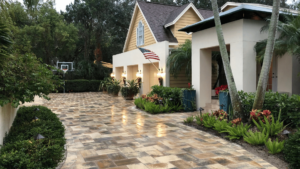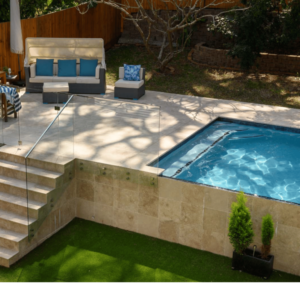Importance of Choosing the Right Material for Driveways:
Choosing the right material for your driveway is essential, as it affects not only the curb appeal and aesthetics of your property but also its functionality and durability. A well-selected driveway material complements your home’s architecture, withstands local climate conditions, and requires an appropriate level of maintenance that fits your lifestyle. The right choice can enhance the property’s value, while a poorly chosen material may lead to increased costs and maintenance issues in the long term.
Brief Introduction to Materials:
Known for their rustic charm and rich history, Chicago bricks bring a timeless character to driveways. Originally made from clay and known for their resilience, these bricks are recycled from old buildings, adding a piece of history to your property.
This natural stone offers a blend of elegance and durability. Its unique texture and range of colors provide an upscale look, making it a popular choice for high-end properties. Travertine is known for its strength and longevity, making it a solid investment for driveways.
Concrete Pavers:
Versatile and practical, concrete pavers are available in various colors and designs, allowing for customization to match any home style. They are durable, easy to repair, and offer a cost-effective solution for homeowners seeking a balance between aesthetics and functionality.
Each of these materials offers distinct advantages and can significantly impact the overall look and feel of your driveway and home.
Chicago Bricks:
- Pros: Unique aesthetic, durability, environmental sustainability.
- Cons: Maintenance, limited design options, potential for irregularities.
- Highlight Larrauris Constructions’ expertise in producing and importing Chicago bricks.
Travertine:
- Pros: Versatility, curb appeal, longevity.
- Cons: Sensitivity to weather, potential for staining, higher cost and maintenance.
- Discuss design versatility and visual appeal.
Concrete Pavers:
- Pros: Durability, low maintenance, design flexibility.
- Cons: Less natural look, potential for fading, can be less premium in appearance.
- Emphasize their practicality and variety in design.






